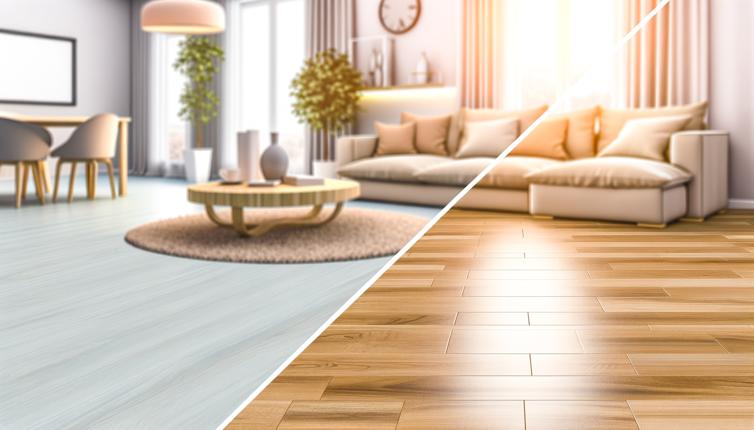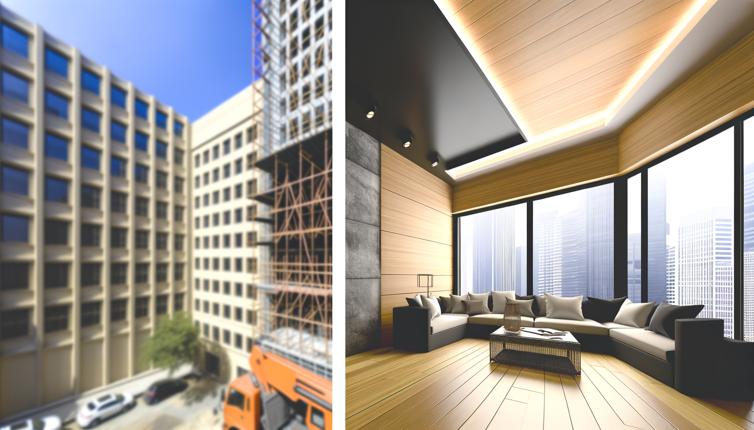What is Vinyl Flooring?
Vinyl flooring is made from polyvinyl chloride (PVC) and other additives.,It comes in a variety of styles, including tiles, planks, and sheets.,Vinyl flooring is known for its durability, water resistance, and ease of maintenance.,It can be a cost-effective option for homeowners on a budget.
What is Laminate Flooring?
Laminate flooring is composed of multiple layers, including a high-density fiberboard (HDF) core, a design layer, and a protective layer.,It can mimic the look of natural materials, such as hardwood or stone.,Laminate flooring is known for its durability, scratch resistance, and affordability.,It is a good choice for high-traffic areas and homes with pets or children.
Key Differences
One of the main differences between vinyl and laminate flooring is their construction.,Vinyl flooring is made of synthetic materials, while laminate flooring contains wood fibers.,Vinyl is more water resistant than laminate, making it a better option for kitchens, bathrooms, and other areas prone to moisture.,Laminate flooring is typically more scratch resistant than vinyl, making it a good choice for homes with pets.,Another difference is the installation process. Vinyl flooring can be glued down, floated, or installed with peel-and-stick tiles, while laminate flooring is usually installed as a floating floor.,Cost is another factor to consider. Vinyl flooring is generally more affordable than laminate.,Lastly, vinyl flooring offers a wider range of design options, including realistic wood and tile looks.
Conclusion
Both vinyl and laminate flooring have their advantages and disadvantages. Consider your specific needs and preferences when choosing between the two. If you value water resistance and a wide variety of design options, vinyl flooring may be the better choice. On the other hand, if you prioritize scratch resistance and affordability, laminate flooring may be the way to go. Ultimately, the right choice is the one that best fits your lifestyle and budget.








